10.01.2022
« Return to NewsStanding in the Gap for Domestic Violence Survivors
Coast Guard Mutual Assistance formalizes assistance, empowering survivors with a fresh start
Arlington, VA – For years, Coast Guard Mutual Assistance (CGMA) has provided financial assistance to domestic violence survivors. The newly announced Safe Harbor Program formalizes that assistance to provide more help.
On average, it takes a person seven attempts to leave an abusive relationship for good. A contributing factor is lack of resources. Survivors are often financially dependent on their abusive partner or have previously been denied opportunities to work, a place to sleep on their own, language assistance, or a network to turn to during moments of crisis. These factors can make it seem impossible for someone to leave an abusive situation.
Government assistance is available for survivors through the Transitional Compensation program. However, it can take months to finalize eligibility and process paperwork before the funds are dispersed. CGMA’s Safe Harbor Program is intended to serve as a stop gap until the government assistance is available.
The Safe Harbor Program provides essential funds to prevent privation by offering a combination of grants and interest-free loans as needed for shelter, food, transportation, and childcare costs. CGMA’s Case Manager and licensed social worker, Jessica Manfre explains,“leaving is often the most dangerous period of time for survivors of abuse. Financial support during this vulnerable stage is a crucial step to empowering a person to take the steps that will secure their safety and give them a higher chance of success away from an abusive situation.”
According to National Network to End Domestic Violence (NNEDV), more than 50% of requests for services made by survivors in the United States that cannot be met are for housing and safe shelter.
“Standing in the gap is a priority for CGMA as we support the Coast Guard community. The Safe Harbor Program mobilizes financial support as a haven for those taking steps to pursue freedom that would otherwise be complicated or delayed.” said Rear Admiral (Ret) Cari B. Thomas, CGMA CEO.
One of the first recipients of the Safe Harbor Program summed up the power of this support, “this has been by far the hardest time in my life. I have lived in fear and isolation for years. My [child] gave me the strength to flee, my greatest thanks for your help in changing the course of [their] life.”
The Coast Guard formally responds to more than 300 incidents of spousal abuse every year. Approximately 60% of those include persons involved in earlier cases. These are only the cases reported and investigated. Statistically, unreported cases are likely to exceed three or four times that number. The number of children abused is currently not known since these cases are generally reported as spousal abuse.
